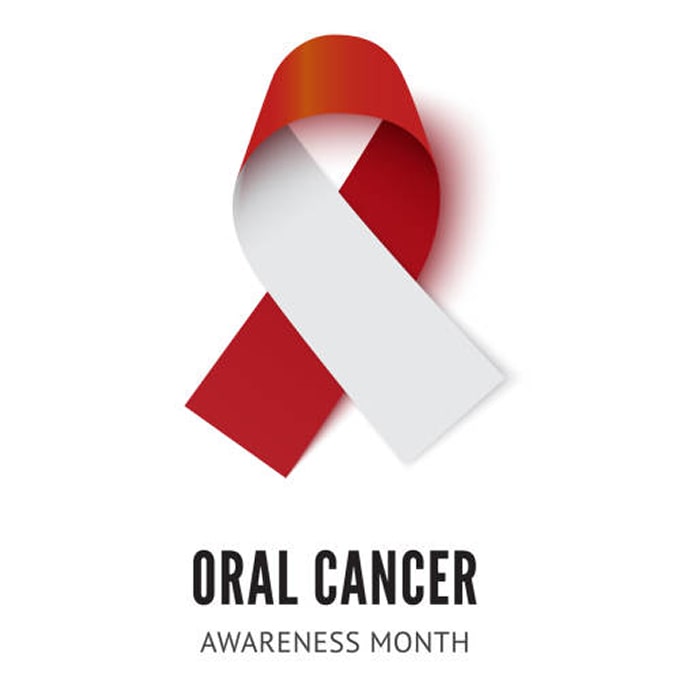Facing Oral Cancer
When Rose Sweat’s dentist found an unusual growth on her tongue, he referred her to a specialist to have it checked. A biopsy revealed the lump was benign and it was removed. Rose was relieved and resumed her daily life with little thought about the procedure.
A decade later, at a routine teeth cleaning, Rose mentioned she had been experiencing significant pain in the same area, but this time in the form of a blister. After a comprehensive exam, she was referred to UF Health Jacksonville, where her case was reviewed by Rui Fernandes, MD, a surgeon with UF Health Oral and Maxillofacial Surgery.

Dr. Fernandes serves as the chief of the Division of Head and Neck Surgery, and co-director of the UF Health Skull Base Surgery Program. He specializes in head and neck cancer, oral cancer, salivary gland pathology, jaw tumors, microvascular reconstructive surgery and thyroid and parathyroid surgery. Dr. Fernandes has years of experience dealing with oral cancer and quickly realized Rose’s issue needed immediate attention. A biopsy revealed the tumor was cancerous, and a plan of action was quickly set in place.
“I couldn’t believe it was happening again,” Rose recalled. “I was very nervous, but Dr. Fernandes put me at ease and my surgery only took a few hours. I went home that night!”
Removing Rose’s cancer
Although Rose’s oral surgery was completed in a very short time, her full treatment was far from over.
The total removal of the cancerous cells is vitally important in treating cancer. In most cases, surgery can eliminate a majority of harmful cells, but some will often remain at a level that, in time, will regenerate and continue to multiply. For this reason, surgery will regularly be followed up with additional treatments aimed at removing cells that may have broken away from the tumor.
The two most common subsequent treatments, chemotherapy and traditional radiation therapy, can be long and taxing on a patient’s already weakened body. These therapies use a “shotgun” effect to attack cancer and can expose large portions of the body to toxins which can also attack healthy cells. In addition, these aggressive treatments can have long-term side effects on a patient’s body, such as organ, tissue and nerve damage, hearing loss, anemia and even secondary cancers.
For this reason, whenever appropriate and available, doctors prefer to use proton therapy, a precision form of radiation therapy. Read more about “What is Proton Therapy.”
Proton radiation therapy
Proton therapy is an advanced form of radiation therapy that uses protons rather than traditional X-rays. It targets tumors and cancer cells more precisely. This means less damage to surrounding tissue, which may lower the risk of side effects and result in a better quality of life during and after cancer treatment. The precise targeting of cells means physicians can deliver higher doses of proton radiation to cancer sites and an increased dose of proton radiation can improve the chances for a successful outcome. UF Health has been at the forefront of proton therapy since 2006 when it opened the UF Health Proton Therapy Institute in Jacksonville.
With the surgery portion of her treatment completed, Rose was immediately referred to proton therapy and placed under the care of Roi Dagan, MD, an Associate Professor in the UF Department of Radiation Oncology and physician at the Institute in Jacksonville. Dr. Dagan is the physician lead for the head and neck cancer program and the ocular tumor program. Dr. Dagan and his team of nurses, therapists, technicians and medical staff treat approximately 120 oral cancer patients each year. This high volume of experience is one of the keys to successfully treating such difficult cases.
“Head and neck and oral cancers are typically difficult to treat,” Dr. Dagan said. “But we have an amazing team of specialists from around the world, each highly educated and incredibly experienced when it comes to rare oral cancers like Rose’s case. A lot of people work together in Jacksonville to treat each patient as an individual. Patients are constantly monitored, evaluated and tested during their time with us, and we use that information to stay course or change direction as needed.”
Rose’s remission from cancer
After six weeks of treatment, Rose responded exceptionally well to proton therapy. Aside from a rash and muted ability to taste, her recovery was relatively quick and uneventful. Although she did receive a partial amputation of her tongue, prior to proton therapy, she is grateful her condition and treatment were less consequential than most patients in her situation, and she credits her doctors and the staff at the UF Health Proton Therapy Institute with her success.
“My experience was not easy,” recalled Rose. “But from what I understand, oral cancers never are, and my case could have been much worse. I’m so lucky Dr. Fernandes and Dr. Dagan’s teams are so experienced and organized. They worked together from beginning to end and the whole affair felt seamless. I hope this is the last time I have to go through this, but if I’m faced with it again, I couldn’t imagine there is a better team out there to have in my corner.”
Written by Parker Hightower and reprinted with permission from UF Health Jacksonville Department of Communications and Marketing.

